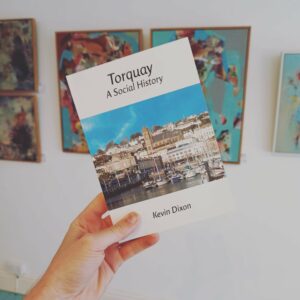On the 6th of November 1914 a headline in the Western Times read, ‘Col. Burn’s Late Son: Torquay’s Expression of Sincere Sympathy.’
The article told of a memorial service held at Ilsham’s St. Matthias’ Church where a speaker had read from the letter of a chaplain serving at the Front. It said:
“Tell the Territorials and soldiers at home that they must know God before they come to the front if they would face what lies before them. We have no atheists in the trenches. Men are not ashamed to say that, though they never prayed before, they pray now with all their hearts.”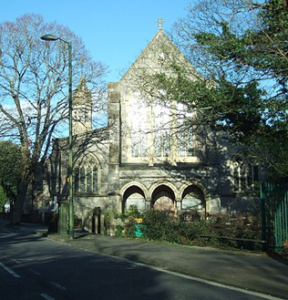
Ilsham’s St. Matthias’ Church
That appears to be the first use of the saying, “There are no atheists in the trenches” which is still being used today to disparage atheists, implying that under pressure non-believers will turn to God.
That phrase, first reported in Torquay, was then used many times during twentieth century conflicts, moving to the United States during the Second World War where ‘foxholes’ replaced ‘trenches’ in the telling.
What the Torquay eulogy does suggest is that atheism wasn’t unknown either in the Flanders killing fields or in Torquay itself.
This challenges the impression we have of Victorian and Edwardian Torquay as a deeply religious society. Yet, church attendance had already begun to decline during the middle of the nineteenth century.
The Victorians believed that Britain’s prosperity, liberty and Empire were rooted in the Christian Protestant faith. To this end, between 1818 and 1884 the Church of England built over 600 new churches
Torquay saw the construction of: St John the Apostle in 1823; St Mary Magdalene in 1849; St Matthias, Ilsham, in 1857; St Luke’s in 1861; All Saints, Babbacombe, in 1865; All Saints, Torre, in 1867; Christ Church, Ellacombe, in 1868; and Holy Trinity in 1896.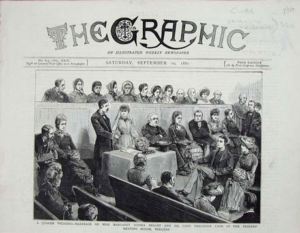
A Torquay Quaker Wedding at the Friends Meeting House in Warren Road in 1881
In 1829 restrictions on the Nonconforming and Catholic churches were relaxed. In the interstices between the Anglican churches, and alongside a resurgent Catholicism, came many chapels and houses of other protestant traditions, particularly the energetic Wesleyan Methodists, Baptists, Quakers, and Plymouth Brethren.
Indeed, Torquay’s townscape was bejewelled with around sixty churches and chapels. Later came the places of study and worship of non-Christian faiths.
Although an emphasis on sobriety and thrift may have appealed to the middle-classes, however, the social conservatism of some faith traditions meant little to working people.
The resort had grown, as had new class divisions, and the churches and chapels often failed to maintain the support of the urban working-class; by 1900 they were beginning to lose the allegiance of the respectable classes too.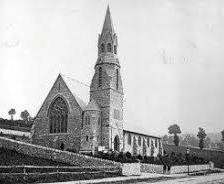
Christ Church, Ellacombe, now closed “The people of Ellacombe had better renounce the name of religionists, and call themselves ‘alcoholists’.”
Recognising that Christian observance wasn’t what it used to be was Ellacombe’s Vicar, the Reverend CE Storrs, who in 1895 gave a sermon entitled ‘If Christ came to Ellacombe’.
The Reverend believed that Jesus would be displeased at what he would find in this new urban community:
“If Christ came today he would see indifference and unbelief more than ever he suffered on earth before. He would find the evil of intemperance rampant. He would see drunken crowds and sottish selfishness. If Christ came to Ellacombe and did a miracle, instead of turning water into wine, as he did in Galilee, He would be rather disposed to turn all strong drink into water. The people of Ellacombe had better renounce the name of religionists and call themselves ‘alcoholists’.”
Alarmed at the falling away of faith, research was then undertaken amongst Torquay’s “working men as a class” to find out why they weren’t going to church.
Women, it was decided, weren’t the problem and were retaining their church-going habits as “it was more of change for women to go out on a Sunday, because they had been in all week, where the men had not”.
At a subsequent Torquay public meeting in 1895 the top ten reasons for local folk not attending church were revealed. These included “the great need for fresh air”; or that working men had unsuitable clothes for church.
Others said that they did not care to attend a church that had one part for the rich, where seats could be bought, and another for the poor; or that men and women were divided up. Some claimed that the sermons were too long, too dull, and too dry.
Most concerning to the researchers was that amongst Torquay men there was an “indifference to religion”; what today we may call ‘apatheism’.
To their surprise, the meeting reported that “some weren’t Christians” at all, and “a great reason in large centres of population for men not going to church was the spread of atheistic doctrines”.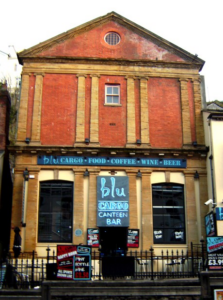
Nonconformism in Fleet Street. The evangelical Starkite Chapel has had many faith, educational, leisure and retail uses over the years
Nonetheless, the majority still identified, in name at least, as Christian.
During the twentieth century, health, education, and welfare services, for centuries the preserve of the Church, were gradually taken on by the state. Then confidence in the establishment and its agencies was further undermined by the carnage of the Great War.
The diminishing role and membership of the faith was discernible in the Torquay townscape as churches and chapels closed their doors to be demolished or converted to other purposes.
How much the Bay has now changed, and continues to change, was evident in the findings of the 2021 Census which updated that taken ten years before.
Thev 2021 Census found that Torbay’s population had increased by 6.4%, from around 131,000 in 2011 to 139,300 in 2021 and will inevitably continue to grow. By 2030 a figure of 145,120 has been put forward.
In 2011 there were 82,924 self-declared Christians in the Bay; 62% of the population. By 2021 this had fallen to 67,634 (49%).
Though the Roman Empire was officially Christan, outside of the cities and towns the Romano-British seem to have held on to their pagan beliefs. Hence, this was the first time that the Bay had not been majority Christian since around 600AD when St Petrox was established at Torre.
But this naked statistic needs to be explored. Surveys tell us that 45% of self-defining Christians do not believe in God. They’re what has been called cultural Christians.
Can you be a ‘Christian Atheist’?
Thousands of people in Torquay, Paignton and Brixham think you can be.
Other faiths have increased. Muslims now number 788, an increase from 521; while Buddhists have increased from 389 to 553; and Hindus from 128 to 223.
Taking all non-Christian faiths together we have a total of 2,741 (7%), up from 2,325 (6%) in 2011.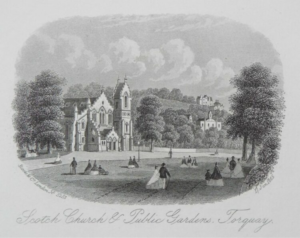
St Andrews Presbyterian Church in Torwood Gardens; now apartments
The most striking change, however, has been in the numbers of local folk who say they have ‘No Religion’. These ‘Nones’ have increased from 35,535 (27%) in 2011, to 60,178 (43%) in 2021.
Again, this needs more explanation. The ‘Nones’ are not necessarily atheists. Many have a range of beliefs that are ‘supernatural’ and some may believe, for instance, in reincarnation or a spirit world.
There are also faith systems that are atheistic. Buddhists do not believe in any kind of deity; while traditions within local paganism also do not believe in a god.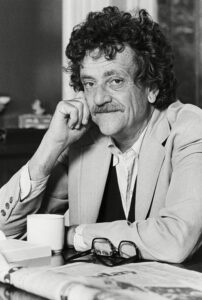 “People say there are no atheists in foxholes. A lot of people think this is a good argument against atheism.I think it’s a much better argument against foxholes.” Kurt Vonnegut
“People say there are no atheists in foxholes. A lot of people think this is a good argument against atheism.I think it’s a much better argument against foxholes.” Kurt Vonnegut
Today, Torbay is a community of many faiths and beliefs. Since Covid we are seeing more rapid change, with migration seeming to be increasing the numbers of those with faith.
Nevertheless, although a snapshot of a few years back, the Census still tells us who we are across the Bay:
Christian 67,634
No religion 60,178
Not answered 8,771
Muslim 788
Buddhist 553
Pagan 270
Spiritualist 231
Hindu 223
Jewish 141
Spiritual 100
Sikh 60
Wicca 55
Mixed Religion 18
Satanism 15
Taoist 13
Own Belief System 13
Bah’ai 12
Druid 11
Pantheism 9
Heathen 8
Witchcraft 7
Occult 5
Rastafarian 5
Eckankar 4
Universalist 4
Native American Church 3
Deist 3
Zoroastrian 3
Shamanism 2
Brahma Kumari 1
Believe in God 1
Animism 1
New Age 1
Mysticism 1
Shintoism 1
Reconstructionist 1
Ravidassia 1
Torquay: A Social History’ by local author Kevin Dixon is available for £10 from Artizan Gallery, Lucius Street, Torquay, or:
https://www.art-hub.co.uk/product-page/torquay-a-social-history-by-kevin-dixon



